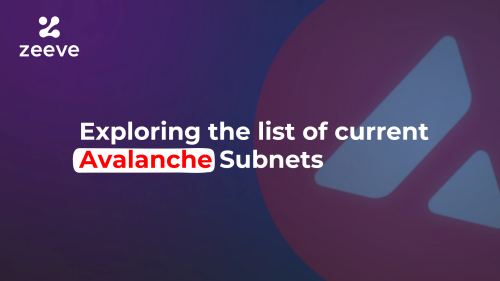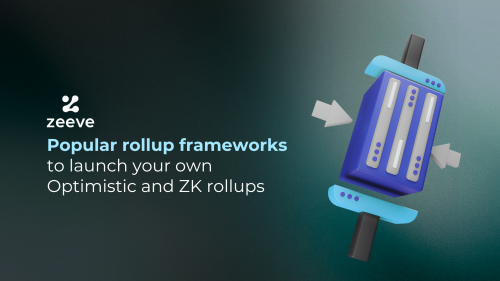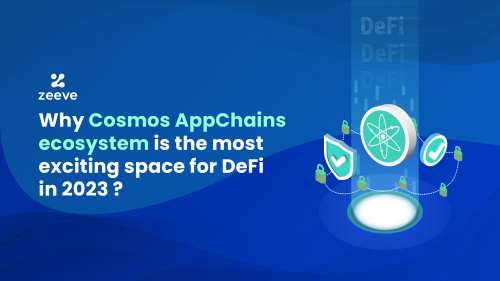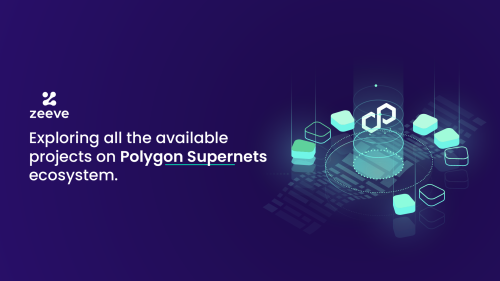Blockchain in the Eleventh Session of the World Urban Forum (WUF 11)
As the years pass, every region of the world is expected to continue to become more urbanized. In order to ensure sustainability and the ability to face challenges and vulnerabilities, we have to constantly reimagine the future of cities and plan the solutions in an inclusive and nature-based way. Technology and innovative approaches are essential to this transformation of cities, policies, initiatives and projects.
With the theme “Transforming our Cities for a Better Urban Future”, the World Urban Forum (WUF 11) took place in Katowice, Poland, at the end of June. One of the events hosted in WUF 11 was “The economy of cooperation with the use of advanced technologies. An example of the use of Blockchain”, moderated by Dr. Sebastian Grabowski, which discussed practical use cases of Blockchain technology in Polish Cities.
The following is the summary of the event:
“The city, a modern metropolis, is the largest open socio-technological ecosystem whose central element is man and his direct interaction with every element, both physical and virtual. Blockchain is a tool that not only responds to the needs of such a defined relationship, but also allows people to fully reuse all the elements there.”
Summary of the event “The economy of cooperation with the use of advanced technologies. An example of the use of BlockChain” [1]
One interesting use cases came from Caruma, a company “expanding the cooperation with city authorities to create solutions for Smart Cities to solve their problems”. Caruma’s technology allows intelligent management of an entire smart city, properly aggregating and using the information on energy, water, temperature, household appliances, TV, alarms, and cameras that generate a huge amount of data when connected to the Internet. The goal is the implementation of blockchain technology for public use in Smart Cities and promote its usefulness, safety and versatility to solve the problems the cities face, like traffic, lack of parking places, air pollution, municipal waste etc.
Caruma is a software house that creates digital tools and products and provides applications that are a virtual key to many closed spaces – doors, gates, barriers, intercoms provides services and apps built and developed on blockchain technology. Their products are built on a platform utilizing the SkeyNetwork blockchain, a communication bus between the IoT clouds of different vendors, enabling them to connect and exchange data through blockchain, creating a Blockchain of Things. Applications focus on services for the modern cities, building an ecosystem that supports the sharing economy, security, and access control while preserving the openness and accessibility of urban space.
Poland has the following projects in its municipalities:
GRUDZIĄDZ
The city has implemented and uses Caruma’s access management system in public buildings. Using the app, the municipal services not only provide rescue services with free movement in closed spaces. In this project, the use of the intelligent key has been extended, making it available to the city cleaning services, to which garbage trucks collect waste in a much more efficient way.
KOŁOBRZEG
The implemented technology connects the gates in Kołobrzeg into one ecosystem managed by one application resulting in just one key being needed for all gates, barriers and intercoms. There are twelve entities involved in the project: three primary schools, the Municipal Plant of Greenery, Roads and Environmental Protection, Regional Cultural Center, City Hall, Municipal Sports and Recreation Center, Sea Port Authority and local services: ambulance, police and fire brigade.
OLSZTYN
Another Caruma project tested their solution for emergency services, providing a unique key for lifeguards that they could use to remotely open any barrier and gate they encountered on their way to the rescue operation. In the first phase, it was dedicated to one city’s hospitals and other health care institutions. This project is expanding to the entire Warmia and Mazury region of almost 1.4 million people.
WARSAW
The City of Warsaw is implementing a pilot project involving blockchain technology for the needs of public services in Warsaw, in line with the idea of a Human Smart City. The project improves the accessibility of public buildings for municipal services, emergency services or other authorized users, consisting of the remote opening of barriers or other barriers using a mobile application that integrates all devices using blockchain technology.
The event also disclosed the report “Blockchain w Polsce”. The report describes the evolution of blockchain systems and distributed ledgers, providing examples of blockchain implementation in the Polish market, especially for public services and finances. The goal of the report is to serve as an inspiration for companies and organizations that are interested in the possibilities of blockchain technology and want to deepen knowledge of the applications and the current status related to its development. The solutions in the report are intended to serve as a source of recommendations regarding the use of blockchain technology.
The information was sourced from Caruma’s brochure.
Sources
[1] World Urban Forum: Eleventh Session (2022). The economy of cooperation with the use of advanced technologies. An example of the use of BlockChain. Retrieved from: <https://wuf.unhabitat.org/event/economy-cooperation-use-advanced-technologies-example-use-blockchain>
Caruma. Retrived from: <https://caruma.io/>
World Urban Forum: Eleventh Session (2022). Caruma brochure. The economy of cooperation with the use of advanced technologies. An example of the use of BlockChain. Retrived from: <https://wuf.unhabitat.org/sites/default/files/2022-06/files/Caruma%20Broszura%202206%204xA4%20WUF.pdf>
World Urban Forum: Eleventh Session (2022). Retrieved from: <https://wuf.unhabitat.org/wuf11>
World Urban Forum: Eleventh Session (2022). WUF-11 Background Paper: Transforming our cities for a better urban future. Retrieved from:







Responses